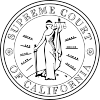| Lugosi v. Universal Pictures | |
|---|---|
 | |
| Decided December 3, 1979 | |
| Full case name | Bela George Lugosi, et al., Plaintiffs and Appellants v. Universal Pictures, Defendants and Appellants. |
| Citation(s) | 603 P.2d 425 |
| Case history | |
| Subsequent history | none |
| Holding | |
| Personality rights are personal to the holder and must be exercised within the holder's lifetime; they do not descend to the holder's heirs. | |
| Court membership | |
| Chief Justice | Rose Elizabeth Bird |
| Associate Justices | Matthew Tobriner, Stanley Mosk, William P. Clark, Jr., Wiley Manuel, Frank K. Richardson, Frank C. Newman |
| Case opinions | |
| Per curiam. | |
| Concurrence | Mosk |
| Dissent | Bird, joined by Manuel, Tobriner |
Superseded by | |
| California Celebrities Rights Act | |
Lugosi v. Universal Pictures, 603 P.2d 425 (Cal. 1979),[1] was a decision of the Supreme Court of California with regard to the personality rights of celebrities, particularly addressing whether these rights descended to the celebrities' heirs. The suit was brought by the heirs of Béla Lugosi, his son Bela Jr. and his fifth wife Hope Lugosi,[2] who jointly sued Universal Pictures in 1966 for using his personality rights without the heirs' permission on toys, posters, model kits and the like. The trial court initially ruled in favor of the Lugosi heirs, but Universal Studios won the case in an appeal. The court determined that a dead person had no right to their likeness, and any rights that existed did not pass to their heirs.[3]
